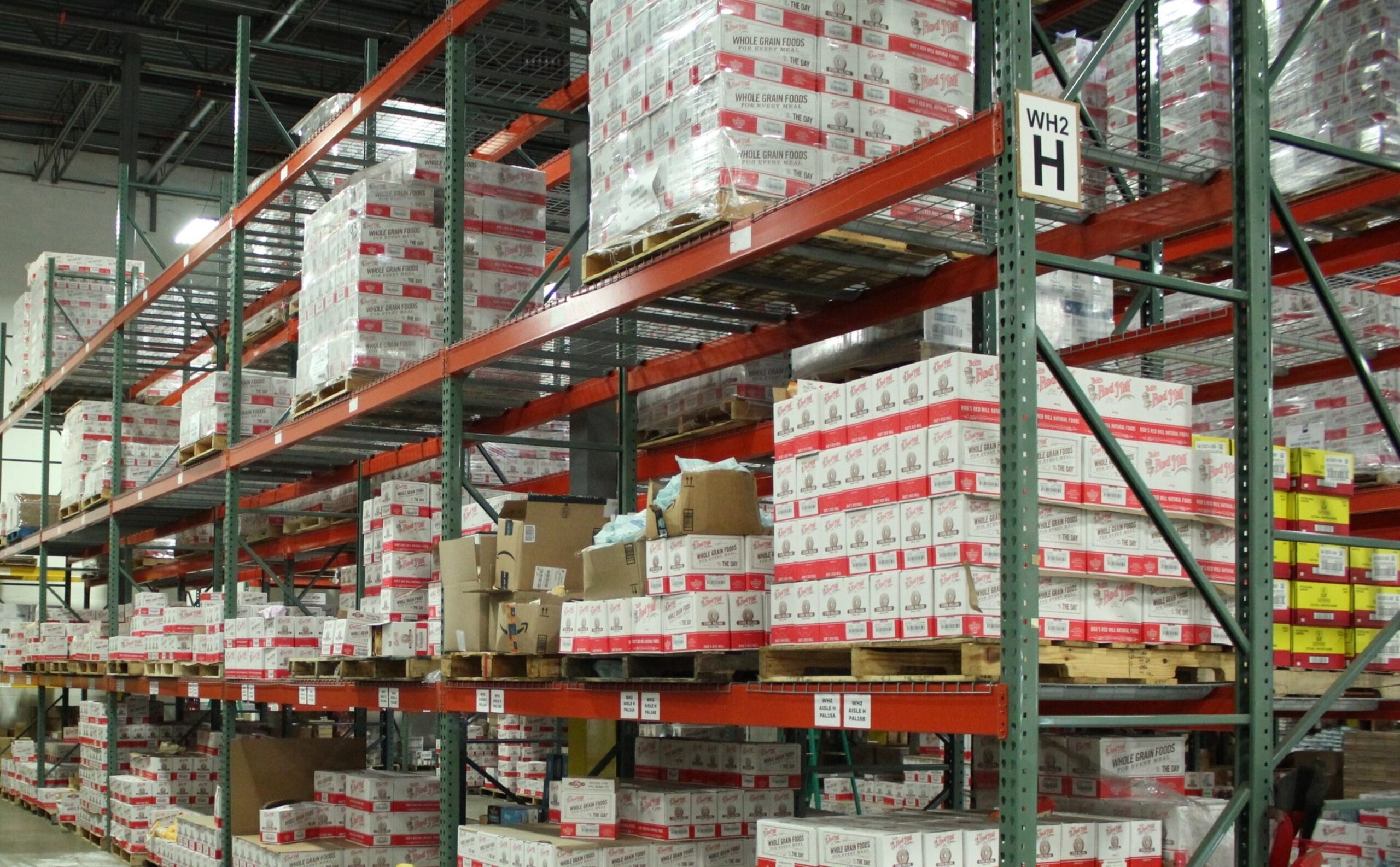Contents

Food distributors are an essential part of the food industry supply chain. Distributors like UNFI and Lineage Logistics purchase food products from producers and manufacturers and then distribute them to various food service businesses.
Although their importance to food businesses is undeniable, working with food distributors can be challenging. Distributors have strict delivery requirements, and can charge carriers (who deliver goods from producers to food distributors) fees in the thousands of dollars for not complying. If a carrier is late by more than 15 minutes, a $1-5 fine per minute can be levied against the carrier. In addition, if the product requires any form of manual labor to unload it, lumper fees can be added as well.
In this article, we will explore the importance of food distributors, the types of distributors, choosing the right one, the benefits of them, and avoiding the challenges that come with working with distributors.
What is The Role of a Distributor in the Food Industry?
Food distributors play a crucial role in the food industry by facilitating the movement of food products from producers and manufacturers to retailers and food service businesses. They are responsible for storing, transporting, and delivering food products to their clients. Without food distributors, it would be challenging for small and medium-sized food producers to reach a wide range of customers.
The primary functions of food distributors include:
- Purchasing goods from producers and manufacturers.
- Storing and managing inventory of food products.
- Transporting food to various locations.
- Selling goods to retailers and food service businesses.
Examples of food distributors include Sysco, US Foods, and Gordon Food Service. These companies are responsible for distributing food products to restaurants, hotels, schools, and hospitals.
What are The Different Types of Food Distributors?
There are several types of distributors in the food industry. Each type serves a unique purpose, and understanding the differences can help businesses choose the right distributor for their needs.
- Broadline Food Distributors: These distributors, such as DOT Foods and UNFI, carry a wide range of products, including fresh produce, meat, dairy, and frozen foods. They serve as one-stop shops for food service businesses and are usually large, national companies.
- Regional Food Distributors: These distributors operate in a specific geographic area and cater to local food service businesses. A few regional distributors in Chicago for instance include Fortune Fish and Gourment, which provides a broad base offering of seafood, and Testa Produce which specializes in a variety of fresh produce.
- Specialty Food Distributors: These distributors you can typically find around any major metropolitan area and focus on specific food categories such as seafood, organic, or gluten-free products. An example of a specialty food distributor is International Meat Company, based here in Chicago, which specializes in serving fine cuts of meats including wagyu steaks and different grades of tenderloin. They offer a more limited selection of products but are often more knowledgeable and provide better customer service than broadline and regional distributors.
- Direct-to-Consumer Food Distributors: These distributors sell directly to consumers through online marketplaces or subscription services. They are becoming increasingly popular as more consumers seek out fresh, locally-sourced products. One of my personal favorites is Vital Choice, in which I can quite literally purchase a filet of Chilean Seabass and the fishermen in Chile will pack it with dry ice and ship it overnight to my home.
Each type of distributor has its advantages and disadvantages. Broadline distributors offer a wide selection of products but may not provide the same level of personalized service as regional or specialty distributors. Direct-to-consumer distributors offer convenience but may have higher prices than traditional distributors.
Benefits of Working with a Food Distributor
Working with a food distributor offers several benefits to both food producers and manufacturers, as well as restaurants and other food service businesses.
For food producers and manufacturers, working with a food distributor can:
- Expand their customer base and reach new markets.
- Reduce the need for in-house logistics and distribution.
- Increase efficiency and productivity by outsourcing distribution.
For restaurants and other food service businesses, working with a food distributor can:
- Save time and money by consolidating purchasing and delivery.
- Ensure a consistent supply of high-quality products.
- Provide access to a wide range of products and brands.
Successful collaborations between food distributors and food businesses include partnerships between Sysco and The Cheesecake Factory, and US Foods and Panda Express.
Challenges with Food Distributors
Working with food distributors can present many challenges for producers, carriers, and the customers that rely on them. Some of the challenges that businesses who work with food distributors may face include:
- Strict Delivery Guidelines: The large and regional food distributors expect product to arrive on time, in full, and in pristine condition. These companies can levy high lumper fees in the thousands of dollars if product is shifted upon arrival, late by minutes, or the temperature of the product is above spec as detailed in the contract, which could require load to be rejected all together.
Ways to mitigate these fees include proper load securement using a load bar, driving carefully, avoiding winding roads in the mountains, and inspecting the product yourself prior to arrival. If the product is shifted, you may be able to shift the product over yourself or use a company like OLIMP to provide outsourced lumper services. - Dependence on Distributors: Food service businesses may become too dependent on their distributors, making it difficult to switch to another distributor if needed.
End customers can mitigate this risk by diversifying their supply base and taking their spend out to market every year with relevant distributors in their network. Further opportunities include creating a contract that is in your favor as well as your distributor by pegging any price increases to a third-party index like the Federal Reserve Economic Data (FRED) - Communication Issues: Communication issues between food service businesses and distributors can arise, leading to incorrect orders or delayed deliveries.
Not all distributors have invested in technology to provide the most accurate ordering, picking and delivering, and communication infrastructure to service their customers.
For end-customers, a great opportunity to control any mis-shipments from communication breakdowns is doing a 2-way match using the purchase order and the receipt upon arrival. - Product Quality Issues: Food service businesses may receive products that do not meet their quality standards, leading to waste and loss of revenue.
Both producers and the distributors are incentivized to sell product and more of it in terms of weight. For produce, it’s important to do spot checks of goods on the bottoms of a carton every now and then upon arrival. For meat, you will want to make sure food distributor’s delivery vehicles and storage facilities temperatures are within an acceptable range.
It’s not uncommon to actually visit a potential distributor’s facility to see how they operate before entering into an agreement with them.
How to Choose the Right Food Distributor for Your Business
Choosing the right food distributor is crucial for the success of a food service business.
Factors to consider when choosing a food distributor:
- Product Range: Food service businesses should choose a distributor that carries the products they need. Sometimes dividing up deliveries amongst multiple food distributors can introduce a level of inefficiency in your business by devoting labor to additional unloading time.
- Product Quality: Food service businesses should choose a distributor that offers high-quality products that meet their standards.
- Delivery Schedule: Sometimes food distributors only deliver at certain hours. That’s a key consideration that should be taken into account for your business.
- Pricing: Choosing a distributor that has competitive pricing is also a must have. Consider sending out an RFQ with your goods to multiple distributors to evaluate the best price.
- Customer Service: If customer service is a major factor, consider that as well. Some food distributors have tried to automate all customer service, so it can be tough to get that personal touch at times.
- Reliability: A good food distributor should be reliable and deliver products on time and in the right condition.
- Research: Conduct research on potential food distributors and read reviews from other food service businesses.
- Ask for Recommendations: Ask other food service businesses for recommendations on food distributors.




